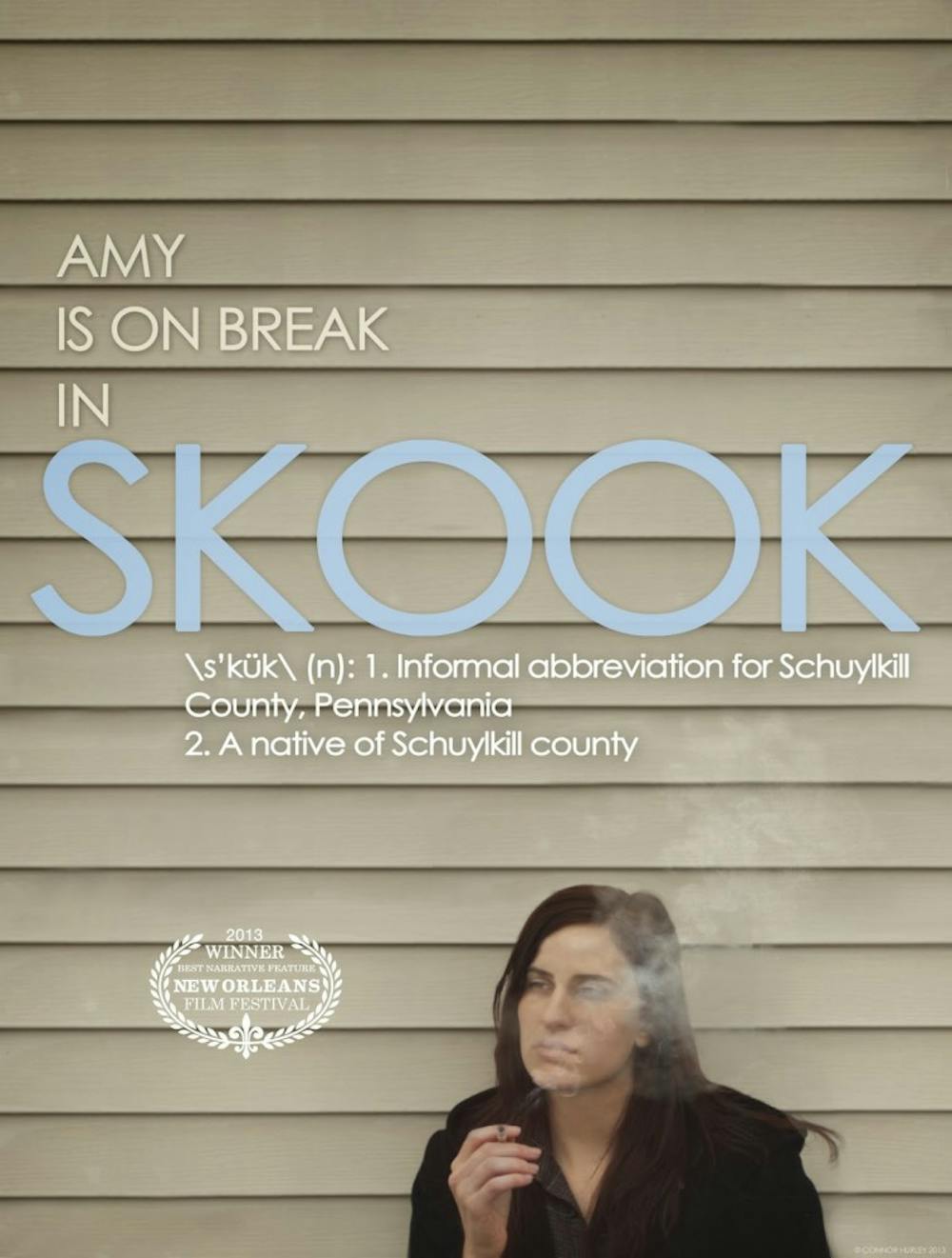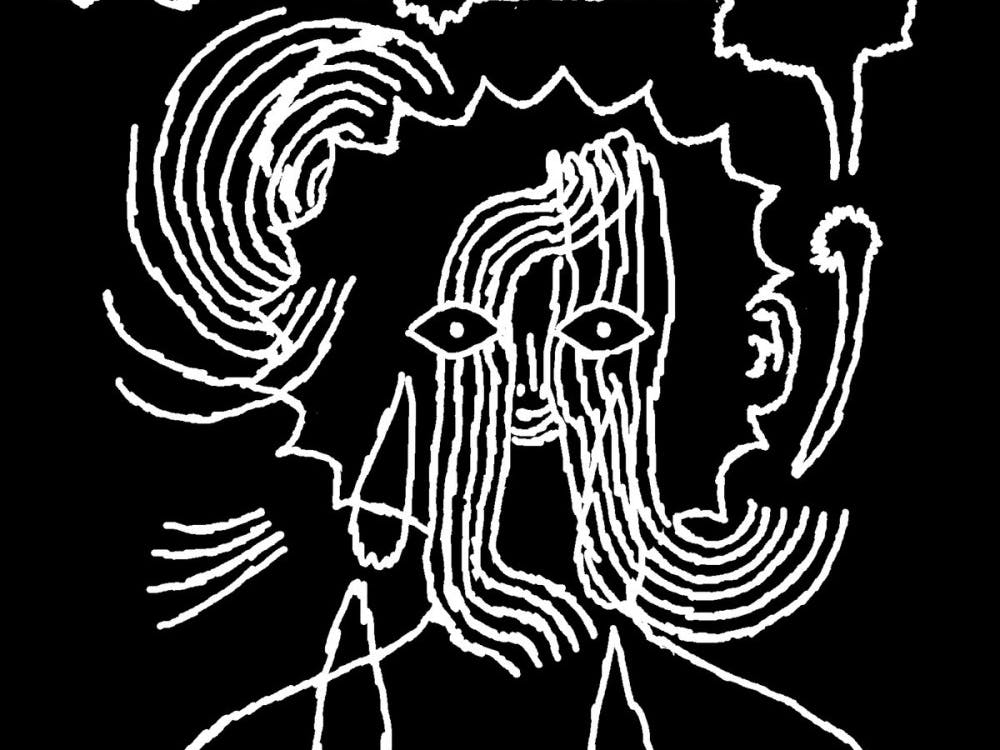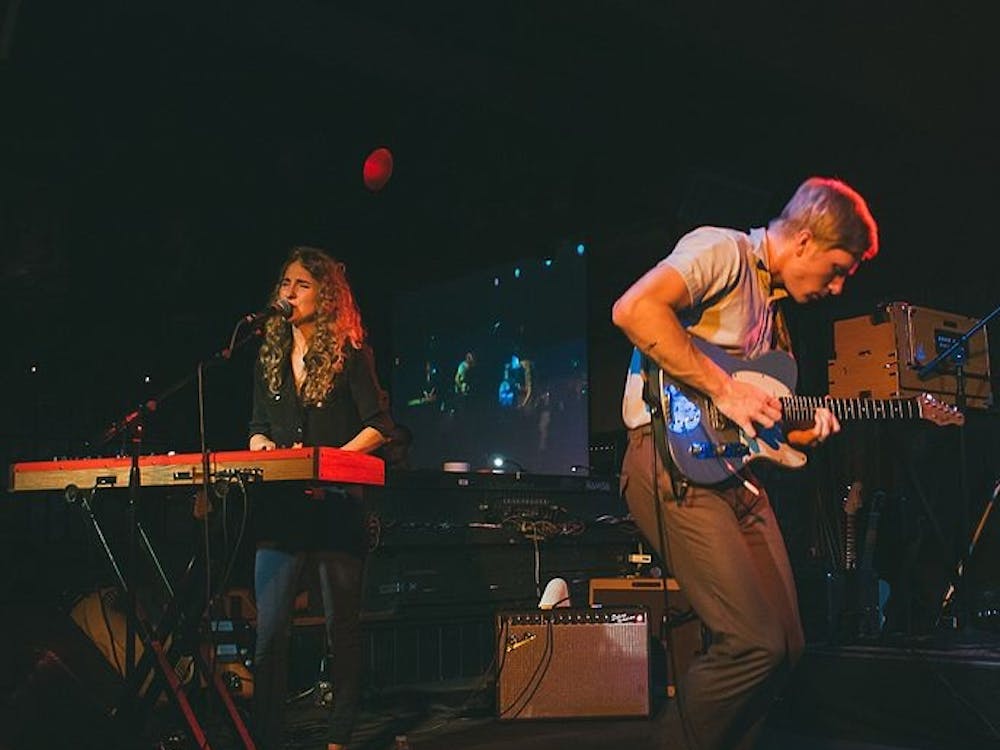This year, the Virginia Film Festival got a taste of raw suburban life with the film “Skook,” directed by 24-year-old Connor Hurley. “Skook” is Hurley’s first official feature film, proving to be quite the success after winning Best Narrative Feature at the New Orleans Film Festival. Hurley began filming “Skook” at 21-years-old, and the majority of the film was shot within his five-week winter break from school.
Filmed on location, the film centers on Amy (Ashley Pishock), a college student studying fashion in New York City, who goes home to Schuylkill County, Pennsylvania (or “Skook,” as coined by its residents) for winter break after her activist boyfriend David (Jon Beland) abandons their holiday plans to partake in the Occupy Wall Street movement.
During the break, she reminisces with her closest high school friends, imbibes in illicit drug activity with her babysitting clients and kindles an unexpected flame with a boy from her past. Through all of this, she realizes the blue-collar suburban lifestyle she left behind might be more than she thought.
Arts & Entertainment was given the opportunity to sit down with Hurley during the Virginia Film Festival this past weekend.
Arts & Entertainment: Tell us a little bit about your background.
Connor Hurley: I grew up in Northern Virginia actually, in Falls Church. I moved up to New York for film school [at NYU] — it was always my dream. But I kind of had this alternate vision of my future where I was going to be an architect just like Thomas Jefferson, and I was going to go to school at U.Va. A lot of my friends from [high] school have gone [to U.Va] so I’ve been down to Charlottesville a couple times and seen it. At heart, I’m a Virginian but I’m also a New Yorker. I’ve been living [in New York] for six years while editing, writing and producing films.
A&E: How did you get your start in the film industry and what drove you to pursue film in the first place?
CH: I kind of decided to become a filmmaker at a really young age. When I was seven or eight, I wanted to be an actor, and so I was obsessed with acting. I had my Legos and would make up stories with them. [I] started getting into stop-motion stuff [and] editing. Then by the time I was like 12 and I discovered that there were film schools, I was like, “Oh, I’m going.”
So, I didn’t really question it until I was 18, and I was already in film school. By then, there’s no turning back. So that was kind of my start — I kind of was just on the rollercoaster.
Specifically with the film, I was working at a production company. It was an internship, [but I] got promoted [and] was working there part time while still in school. And then about a week before Christmas, after graduating early and working full time, we all just get laid off. We were all devastated and they just said “the company don’t exist anymore.” But my friend — Ashley [Pishok] — had this script, and all the partners [of the company] had this great equipment and were in a legal dispute over who owned it, so none of them could touch it. Kind of like a consolation, they gave us the equipment, and we went to Pennsylvania [to shoot] the movie.
I had no idea what I was doing, but I pretended like I did the whole time. Everyone’s asking me for decisions. It’s a lot harder [than you think]: you always wish you had more money, more collaborators. But the benefit is I learned everything from the ground up, from designing the film’s poster to compositing in the TV screens. I just had to learn all the skills that it took to make a film because that’s what it was going to take to finish it. And I just think [it’s best to] always finish what you start.
A&E: What has the journey been like for this film?
CH: Well it was a really long journey to finish it because we had no money. And a lot of times, it was just me editing it and just pushing it along. About a year ago, we premiered at the New Orleans Film Festival. It was awesome — we won it, which was great. Since then, it’s just been other festivals around the U.S. This will probably be our last screening, I couldn’t think of a better place to kind of wind it down, because now I can finally show it to friends, family and people who worked on it.
A&E: Who is your audience? How are you attempting to reach them?
CH: I think it’s really interesting that we’re screening here, and there’s been a really enthusiastic response. You know, we’ve seen a lot of post-grad films … about the anxiety of moving home after you’ve graduated. But I think there’s a really pivotal turning point, when you’re about 19 or 20, that isn’t really explored on film. It’s about that, that very angsty period. I think that it’s definitely a generational film. It’s very vulgar — there’s a lot of weed, Internet bullying, et cetera. So I think it’s very specific to our generation, the millennials. … We’re mature beyond our years and grappling with issues that I don’t think previous generations had to. If anyone would really understand this movie, it would be college students — people going through that experience now.
A&E: What inspired you to make “Skook”?
CH: I was the weird artsy kid [in high school], no one could quite peg down. I really found myself when I moved to the city and was just around other weird artsy kids. You get out of that angsty phase. You go home though, and you’re still with those kids who used to tease you or whatever, still running into them, and you confront that you’re not quite the adult that you think you are. So I really related to [the screenplay]. It was really what was happening in my life right then and there. It was material I knew I could handle and material I wanted to handle.
A&E: What type of film most influenced your style?
CH: I’m rediscovering silent films, and I have to say it’s remarkable how within 20, 30 years from the inception of [that] medium, it came of age. Those dudes like Chaplin nailed filmmaking, the art of it. It’s kind of defeating because you’re like, 'What am I doing?'
These dudes were doing it a hundred years ago and a lot better. And you know, it’s great to get back to basics and understand the fundamentals of storytelling and suspense and humor. They were also just daredevils — they were producing, writing, acting, doing their own stunts. So that to me is really inspirational right now, I think. If I could pick one director who speaks to me, it would be Jonathan Glazer (“Under the Skin,” “Birth,” Radiohead music videos, et cetera). “Skook” is different from my personal work, which is much closer to that heavier tone, darker material — something I kind of want to merge with my next projects.
A&E: How would you describe your filmmaking process?
CH: You kind of just have to throw yourself into it and not question it. I’m coming from a background of painting and visual arts. I storyboard a lot, I take my own photos and I write too, so now I’m much more involved in every aspect of it. The biggest thing is executing and finishing what you start. There are so many filmmakers out there that spend years talking about a film [and] fundraising … but I think it’s more important that you’re constantly creating, constantly outputting.
A&E: Do you have any advice for aspiring filmmakers, or people planning on going into the film industry?
CH: Just do it. Set the deadlines for yourself. There aren’t excuses. If you can’t pay someone for a particular skill set that you need or can’t find a collaborator, learn to do it yourself and make it happen. Finish what you start and then do it again and again and again. Accept failure. … There are a million things I would have done differently with “Skook” if I’d had the time, maturity and the foresight. But you still gotta do it and represent it, and you learn from it and you move on. I would recommend making a lot of short films and just keep making them and be OK [if] they fail in little ways and big ways. Just don’t let it get you down, just keep doing it. That’s what’s going to separate you from the people who stop doing it [and] from the people who really make it as filmmakers.
A&E: What’s your ultimate goal?
CH: I just want to keep creating and to keep challenging myself.







